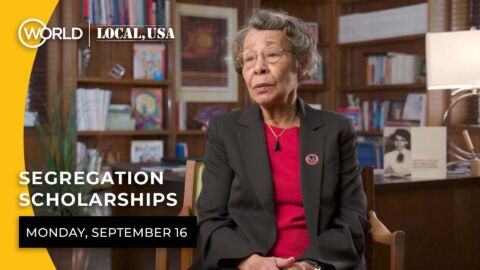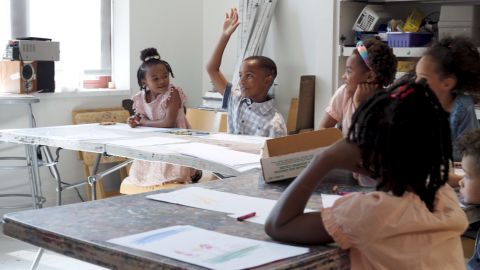Falling Poverty Rates on Native Reservations Attributed to Education
From our partners at Prairie Public News, a report on falling poverty rates on Native American reservations.
The director of North Dakota’s Indian Affairs Commission says he believes the poverty rate among Native Americans in North Dakota is dropping.
As Prairie Public’s Dave Thompson reports in our series, “Chasing the Dream,” Scott Davis attributes that to education.
Davis says the tribal colleges have really stepped up their game, especially when it comes to workforce training.
“Whether it’s a certificate in truck driving, welding, energy-related, if you want to say that,” David said.
And Davis says it goes beyond workforce training.
“The business degrees they offer, the nursing, teacher education,” Davis said. “So I see them playing a big, big role on the reservation in fighting poverty.”
Reservation counties have generally had significantly higher rates of unemployment than other counties in North Dakota. Davis says while that’s still true, he thinks that is changing. But Davis says it can be hard to get people to think beyond what they grew up with, and what they’re used to.
“Look at the welfare system,” David said. “I’ve had a lot of conversations with my friends and family about that, about just that being normal. And sometimes it’s hard to debate or challenge their thinking on that, because that’s normal. And I can’t fault them for that. But in some way, shape or form, through education, and I think through mentoring, we can change these mind-sets.”
Davis has first-hand experience with escaping the welfare system.
“Even my wife and I are products of that,” Davis said. “We were on welfare when we first started our marriage, and had the first child. I mean, I didn’t like sitting on top of roofs and doing labor jobs after labor jobs and getting by with minimum wage and so forth. And I knew I had to make a decision.
So, Davis went back to school. And he says he learned a valuable lesson – that if you’re not willing to learn, something – or someone else – will control you.
“What controlled me and my wife was poverty,” Davis said. “What controlled us was the welfare system. I know TANF and things like that are needed. But it controlled me – and I didn’t like that.”
Davis says education allowed his family to have a house, a car – and some of the material things of life. Buthe says there’s more to it.
“It’s that feeling that you’re kind of free,” Davis said. “You can pick and choose what you want to do. That I like. Me and my wife, we both love that.
Davis says one thing he stresses to young people is – having a strong work ethic.
“If you don’t have a work ethic, you will be poor,” Davis said. “I’m not saying the monetary sense of being poor. But you may be poor in spirituality. Your intellect may be poor, because you don’t have a work ethic. Your physical being may be poor, because you don’t have a work ethic. I really push that on our students – you gotta have a strong work ethic for success.”





